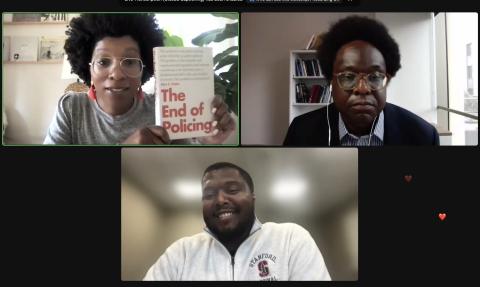Lessons from abolition work in other sectors: What can social care learn?
Presentations from 2022 SIREN National Research Meeting: Racial Health Equity in Social Care
Speakers: Rhea Boyd (pediatrician, public health advocate, and scholar; multiple affiliations), Osagie Obasogie (School of Law, Joint Medical Program, School of Public Health at University of California, Berkeley), Darion Wallace (Stanford Graduate School of Education)
Social care practice and research are often inspired by intentions to advance health equity. However, social care is often planned and executed without a clear recognition of and confrontation with the racism, particularly anti-Black racism, that has led to existing inequities. While the legally-sanctioned enslavement of Black people in the United States was abolished in 1865, many of its aims have been perpetuated through residential segregation, the War on Drugs, and the school-to-prison pipeline, to name a few examples. The SIREN National Research Meeting kicked off on September 15, 2022 with a challenge to our moral imagination: In what ways would social care benefit from the contemporary theory and practice of abolition movements in other sectors?
In this opening plenary session, physician, scholar, and thought leader Rhea Boyd facilitated a discussion with legal professor and ethicist Osagie Obasogie and education scholar Darion Wallace. Discussants explored how abolitionist thinking has been applied in other fields, including the legal system and school-based education and ways to re-imagine types of social care that cultivate healing and racial health equity.
Publications mentioned in this session:
- Becoming Abolitionists, by Derecka Purnell
- Torn Apart, by Dorothy Roberts
- The End of Policing, by Alex Vitale
- Pushout, by Monique W. Morris
- “Just what is afropessimism and what’s it doing in a nice field like education?: Unpacking new contributions to Black educational thought”, by C. Darius Gordon
